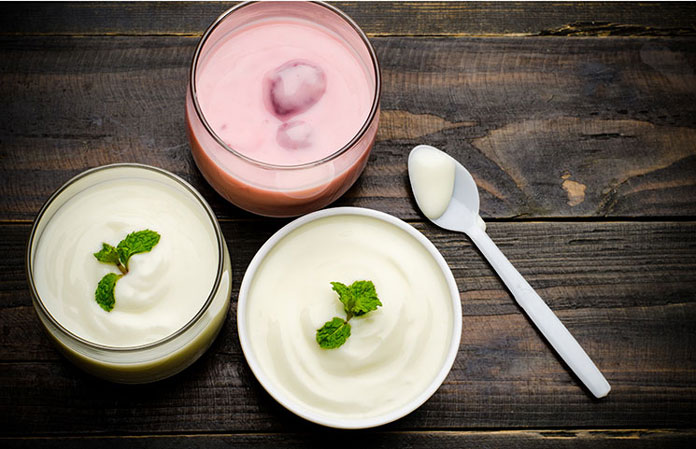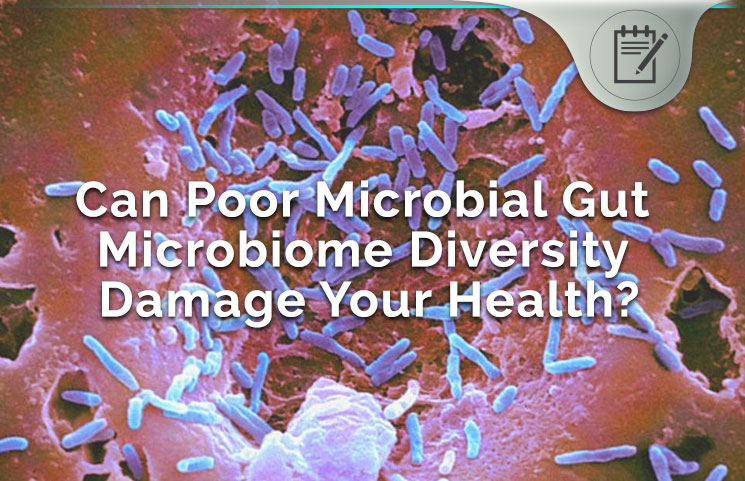Imagine a scenario where your food doesn’t digest completely, where your immune system is completely lacking, and toxins pile up in your belly without anything to digest and get rid of them. This is what happens when you don’t have sufficient gut bacteria.
Unfortunately, modern health diets, lifestyles, probiotics and use of super strong antibiotics have all contributed to undermining the population of these incredibly important microorganisms, which in turn, adversely affect our health and wellbeing.
A 2016 study by the Weizmann Institute in Israel indicates that there are about 30 trillion cells and another 39 trillion bacterial cells in the human body (although this fluctuates between 30 trillion and 50 trillion depending on various factors).
The number of microorganisms in the body is easily thrice that. Gut microorganisms play a critical role in determining your overall health.
Your digestive system currently harbors lots of friendly microorganisms in the form of viruses, bacteria, and fungi… all of which are healthy and support your life. These are generally classified as microbiome.
Our bodies essentially need these microorganisms to become tougher. The reality is that without them, your immune system would be nonexistent.
Recent research into the role of microbiomes have shed light on their vastly important role in the human system, how they grow, what factors affects their population negatively or positively, and how they impact human health.

Understanding What Is In The Human Digestive System
It is interesting to note the vast difference in microbiome population in different individuals, populations and countries. It does appear that the population varies based on location, and most individuals often have a limited number of species.
For instance, there are about a thousand known gut bacteria species, but you’ll only find less than 200 at every given point in time in different people. The good news is that all of them tend to work well together to provide a healthy gut, regardless of the specific species.
Typical functions of these microorganisms include boosting your immune system, increasing your resistance to illness and alien microorganisms, food digestion, and helps with the production of essential amino acids, hormones and vitamins.
This is why your diet plays a critical role in determining just how heathy you are. The average American eats a high calorie meal that’s rich in refined sugars and contains high fat content.
Apart from the fact that meals like this can cause significant damage to your health, they also adversely impact the population of your gut’s microbiome. As a result, there’s less microbial gut diversity, which in turn affects your sense of wellbeing and overall health.
Scientists have conducted multiple studies where they tested the impact of diet on gut microbiome activity. In one of these studies, a group of mice were placed on a fiber deficient diet over a four week period.
They found that this diet adversely affected the population of some of the species, resulting in lower microbial gut diversity. Interestingly, the population increased to almost normal levels when the rates were placed in fiber rich diets.
Most people assume that you have to be on these poor diets for a long time before feeling the effects or impact. The reality is that it doesn’t take long for poor diets to have a prolonged negative impact on the population of your microbiome.
Poor diets not only affect you now, prolonged or lifelong consumption of low fiber and unhealthy foods can completely wipe out diverse gut microorganisms in offspring. The aforementioned study showed that gut microbiome diversity was completely wiped out by the fourth generation due to a prolonged exposure to poor, fiber deficient diet.
Quick History Of The Human Microbiome
Before scientists started studying microbiomes more closely, it was generally assumed that these microorganisms were only introduced after birth and as an individual ages. However, recent studies have showed this to be untrue.
Studies carried out on mice fetuses showed that the amniotic fluid surrounding the mouse fetus contained some of the microbiome commonly found in the gut. This makes sense seeing as the fetus feeds from the amniotic fluid.

Concluding tests carried out on newborn mice first poop actually confirmed the presence of microbiomes. It is interesting to note that in humans, the microbes found on and in newborns are often associated with how they were birthed.
For instance, babies pushed out from the vagina tend to have more microbes found in the vagina and birth canal, while those birthed through caesarian section tend to have more microbes found on the skin in their guts.
Of course, scientists are beginning to think that there might be a connection between how a child is born and the development of certain ailments and conditions later in their lives.
For instance, researchers are looking at possible links between individuals born through caesarian section individuals and their likelihood of developing health conditions such as celiac disease and asthma as they grow older.
The first microbiomes humans have in their bodies include firmicutes and bifidobacterium. These are usually important for the breakdown of lactic acid, a byproduct of milk. In fact, studies have shown these microbes to be more abundant in people who were breastfed as against those who were raised on formula.
This is because breast milk often has high anti-inflammatory properties as well as healthy microorganisms that help improve gut health.
Naturally, the dominant microbes tend to change based on diet. For instance, hen children start switching from milk to eating solid foods, the dominant microbes change from bifidobacterium to bacteroides. The latter are more helpful in the digestion of solid foods as well as extraction of key ingredients like vitamins and minerals.
The microorganism population and diversity are often established when the child exceeds their third year. Dominant microbes however, are often dependent on the location of the individual, and can often determine an individual’s state of health throughout their lives.
For instance, children in other parts of the world like Africa tend to have Prevotella as the dominant microbe in their guts, compared to children in first world countries like the US, who often have firmicutes and bacteroides.
Are Health Conditions Linked To Poor Gut Microbial Diversity?
There are indications that certain allergies developed during childhood may be linked to a lack of diversity in the microbiomes available in individuals.
For instance, studies have shown that children with low amounts of bifidobacterium and sizable candida population in their guts are often at risk of developing health conditions like celiac disease, asthma and eczema.
Unsurprisingly, there are also higher instances of food allergies among a significant number of the American population. While this is inconclusive so far, there are indications that food allergies may be as a result of poor microbiome diversity.
Scientists and researchers are beginning to see fewer or nonexistent instances of food allergies in individuals with abundant gut microbial diversity, compared to those with lower microbe diversity.
While there are many reasons for this, scientists are suggesting that since these microbes play a role in the production of hormones, and you need the microbes to help with their production, it goes to reason that if that process is hampered somehow, it will affect the hormone’s ability to signal the brain.
This can result in significant negative impacts on your health and even cognitive impairment. For example, when mice were fed with junk foods over a long period of time, they had offspring that exhibited autism related characteristics.
Not just that, it appears that poor gut health and microbiome diversity tend to have long term effects on your health. For instance, there are studies linking poor gut health to Parkinson’s disease and Chronic Fatigue Syndrome (CFS).
Even more interesting is the link between Irritable Bowel Syndrome (IBS) and CFS. Studies have shown that that 90 percent of the people who suffer from CFS tend to have Irritable Bowel Syndrome (IBS).
Studies involving people living with IBS/CFS and a control group consisting of healthy people without any of the symptoms reported significant difference in microbe population and diversity. The gut flora population also differed based on the severity of their conditions. As if that isn’t enough, studies have also linked poor gut microbial diversity to bowel and breast cancers with some showing that certain bacterial growth can result in tumors.
Armed with this information therefore, scientists are fast researching the possibility of a permanent IBS/CFS cure based on this information and many others.

Probiotics To The Rescue?
In case you don’t know what they are, probiotics are simply good bacteria in the form of food, that can be taken to help complement the effects of your gut’s microbiome. Till date, probiotics are primarily used in helping the body fight off certain infections or diseases.
And so far, this has proven very effective both in humans and mice. For instance, when mice that were diagnosed with autism related conditions were frequently given decent amounts of probiotics containing Lactobacillus reuteri, their autistic tendencies were normalized.
Probiotics containing the same bacteria have also been linked to the reversal of depression in stressed mice. Other strains of bacteria like Prevotella histicola, commonly found in high fiber diets and probiotics, have been linked to the curbing and preventing of multiple sclerosis, production of anti-inflammatory cells and the decrease of inflammation in the body.
Probiotics have also been linked to the prevention of type 2 diabetes and reduced instances of eczema development in children whose mothers took probiotics when they were pregnant.
As you can see, probiotics are increasingly becoming important and necessary for man’s health, and may play a critical role in keeping him healthy. And even though it’s not a fix-all for man’s health problems, scientists are looking to identify even more healthy bacteria that can help man fight off and prevent diseases.
If this ever comes to fruition, we just might be on the cusp of a new era of unprecedented health and wellness where diseases can be prevented and man can live completely disease-free. But, until then, you must do everything you can to give your body a fighting chance against diseases and other conditions.









